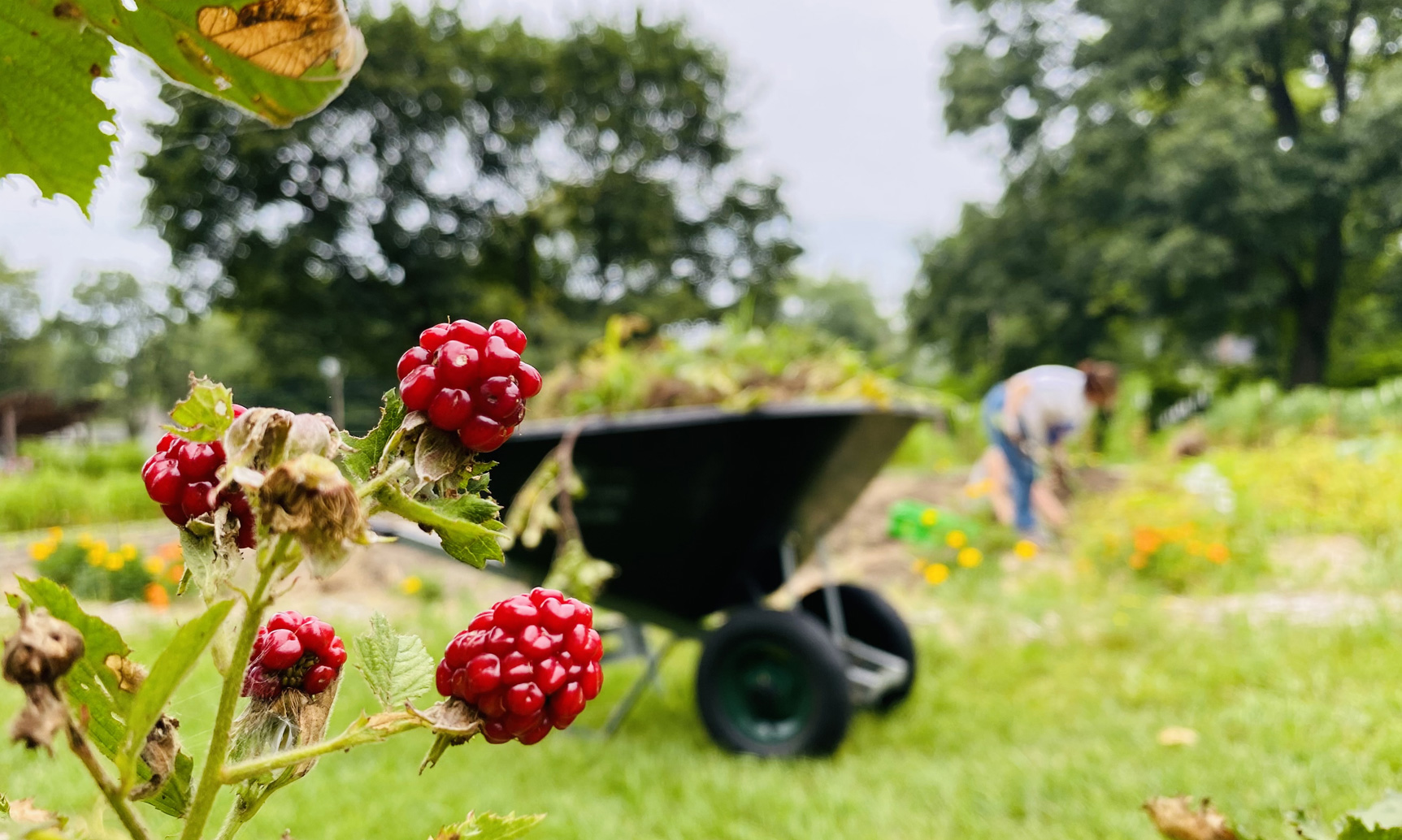
Eater’s Almanac is our weekly newsletter for the Huss Project Farmer’s Market. You can receive a print copy each week at the market, which includes a recipe for seasonal vegetables!
“We are each other’s harvest. We are each other’s business. We are each other’s magnitude and bond.”
Gwendolyn Brooks
We hear a lot these days about “agreeing to disagree.” In our volatile political climate, sometimes it’s the best we can do. Sometimes, however, it’s what we say when we don’t want to do the hard work of examining our own assumptions. “Let’s just agree to disagree” might be translated as, “I’m entrenched in my opinion and don’t intend to change.” The thing about hanging out in the trenches is that, while it’s a space we go for safety, it’s also a space from which to lob grenades at our enemies.
So what does this have to do with food?
Food, like everything else, has a political side to it. What we put in our mouths may be a personal choice, but that morsel of food is tied into complex systems of collective decision-making. For example, what chemicals are permitted for use on large farms impacts food and drinking water for billions of creatures, most of whom have not evolved to write a letter to their elected official (yet). Municipal laws dictate whether someone can raise their own laying hens. Federal law defines what counts as a “vegetable” in the school lunches on which millions of children depend. The availability of sufficient public health care can decide whether someone embraces a dream of farming or concedes to work in a factory.
Healthier food systems that work for Earth and all people are worth fighting for at all levels of society, from our neighborhoods to our national policy. We can re-imagine and transform these systems, because we’re part of them! But in order to dismantle the layers of greed and obscurity that have accumulated over the centuries of industrialization, we need to go beyond “agreeing to disagree.” We need to “agree to persuade.” Persuasion is an art, rooted in love and care—not unlike the best food. And perhaps persuasion is best practiced around the dinner table, where we can model joy, abundant simplicity, and welcome for all.



